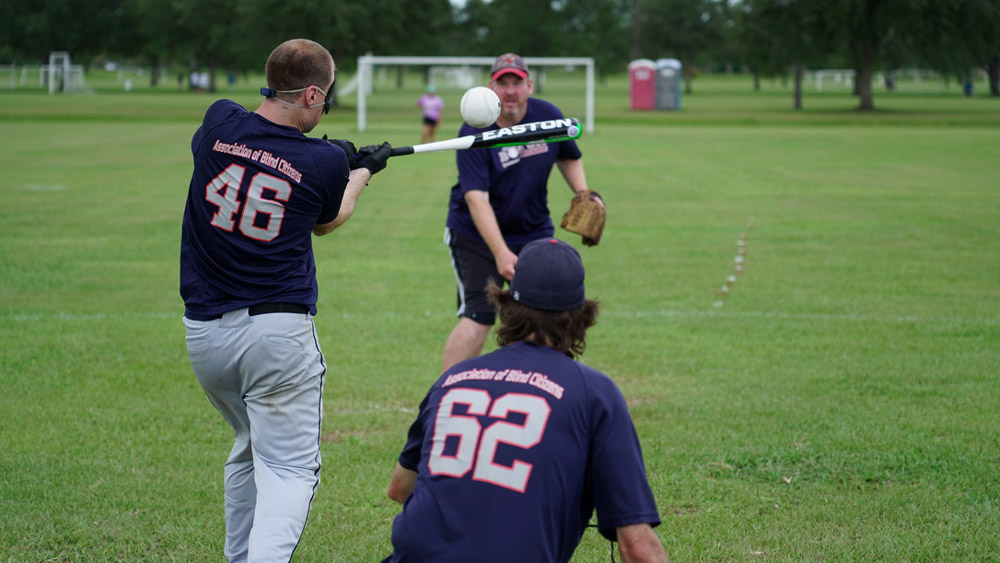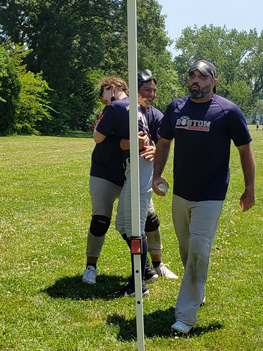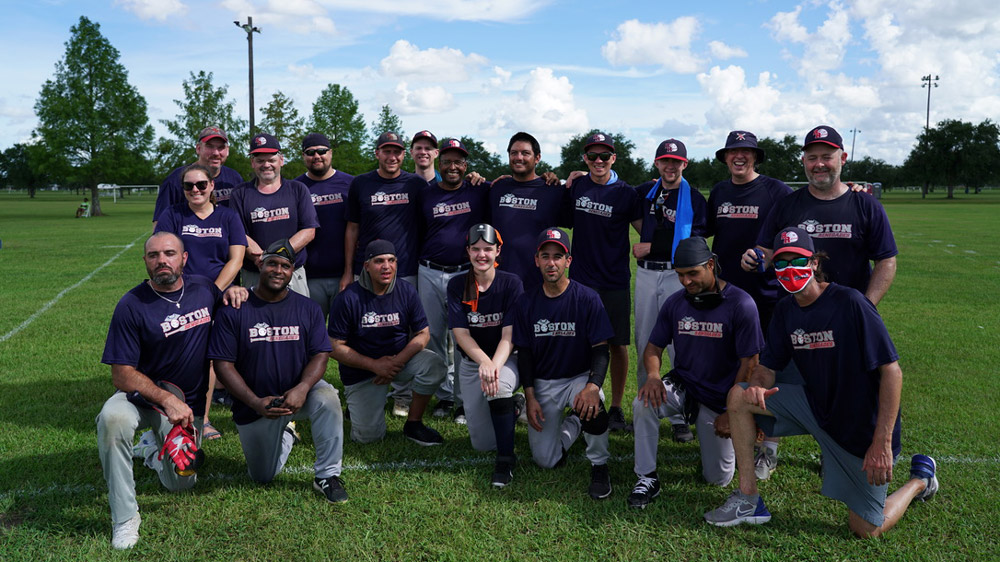Through inclusion and diversity, the Renegades give blind and visually impaired individuals the opportunity to bond and play baseball.
Joe McCormick is a Harvard graduate with a degree in computer science. Drew Crook works as a retail specialist for Apple at a mall in Massachusetts. Melissa Hoyt once threw out the first pitch before a Boston Red Sox game despite battling Mitochondrial disease.
These three individuals may have different backgrounds and occupations, but they all have one thing in common: a love for beep baseball, an adaptive form of baseball for the blind. McCormick, Crook and Hoyt play for the Boston Renegades, a team established in the early 2000’s through the Association of Blind Citizens (ABC).
In 1964, an engineer for a Colorado telephone company named Charles Fairbanks developed a ball containing an electronic device that made a beeping sound. It took several years and numerous modifications for the sport to evolve.
In 1976, the National Beep Baseball Association (NBBA) was formed, and beep baseball has become one of the most popular sports for the blind in the United States. An annual World Series of Beep Baseball is held in a different host city each year, and the game has been introduced to Taiwan, the Dominican Republic and Canada in recent years.
The game is played with six players to a side who all wear blindfolds. The pitcher and catcher are on the offensive team, and there are two sighted volunteers called spotters out in the field who give verbal cues for players on defense.

Rob Weissman was coaching a beep baseball team in Lowell, Massachusetts when he received a call from John Oliveira from the Association of Blind Citizens, an organization dedicated to creating opportunities in education, employment, recreation and other life activities for the blind. Oliveira
proposed the idea of creating a bigger team in the Boston area. Weissman agreed, and the Renegades were born.
“He had the financial resources, he had the volunteers, players and the volume of people that wanted to do it,” explained Weissman, a native of Massachusetts who graduated from Hofstra University and worked for Major League Baseball. “What we had in Lowell was three baseball people who were kind of making it work. We ended up getting together and it’s gotten better every year.”
While attending Hofstra, Weissman befriended several people with disabilities. He helped create a wheelchair hockey program on campus for several years.
One of Weissman’s blind friends, Stephen Guerra, contacted him several years after the two had graduated about starting a beep baseball team in Massachusetts. A big baseball fan, Weissman was happy to help. He is both the catcher and head coach of the Renegades.

“That was way back in 2000, and I’ve been pretty much doing it ever since.”
The biggest challenge for the Renegades starting out was gaining interest and building a strong culture that players and volunteers would commit to long-term. Through persistence and a solid financial backing from ABC, the Renegades have established themselves as one of the longest-running teams in beep baseball.
“Everyone had opinions. It’s about putting those opinions to work and continuously trying to improve those processes to be inclusive and help everybody get something out of the experience.”
The team currently consists of 15 players and over 20 volunteers. Players range in age from 20 to 53. Hoyt is one of two female athletes on the roster. Her condition often limits her ability to play, but she loves the game and being on a team. In 2017, she was asked to throw out the first pitch of a Boston Red Sox game at Fenway Park.
“Even with all the uncertainty of living with this progressive disease, people shouldn’t give up hope,” Hoyt told the Mitoaction Committee in an interview for their website. “If there’s something you want to try, try it.”
Community involvement is something the Renegades take great pride in, not just for fundraising purposes but to create awareness about the sport. Recently, they took part in an exhibition game against a group of local firefighters who put on blindfolds and got the full beep baseball experience.
“They gave us a great game,” Weissman said. “It was awesome. It’s a great way to educate the area and the community about ability and disability. We also use (these events) as a way to recruit, to create opportunities to get people interested in volunteering for us or playing.”
Weissman first heard about the Foreseeable Future Foundation through one of the Renegade players. He applied for a grant this past spring and was accepted in May. The funds are being used to cover transportation, hotels, rental vans and other travel expenses to get to the World Series of Beep Baseball.
“I checked it out, and I was blown away. One of the things I loved about the grant was that it was a team grant. That’s the kind of (funding) we were looking for, things to help the team overall.”

In 2005, a film crew followed the Renegades through a couple of seasons and produced a documentary about the team. It was released in 2013 and has been viewed at various film festivals and at the Baseball Hall of Fame in Cooperstown. It also won an award for Best Documentary at a New Hampshire film festival and is available on DVD at the Renegades website.
Inclusivity and diversity are very important to the Renegades, as demonstrated by the variety of backgrounds and disabilities present on the team. It’s something Weissman takes great pride in.
“(Beep baseball) is not for everybody. It’s a very physical sport. When we find people with whom it fits, it doesn’t matter where they came from, how old they are, their religion, sex, any of that. The key thing we all have in common is everyone wants to be together, to work together towards a common goal and support each other.”
For more information on how to become involved with the Boston Renegades, visit their website.
To learn more about beep baseball, click here.

